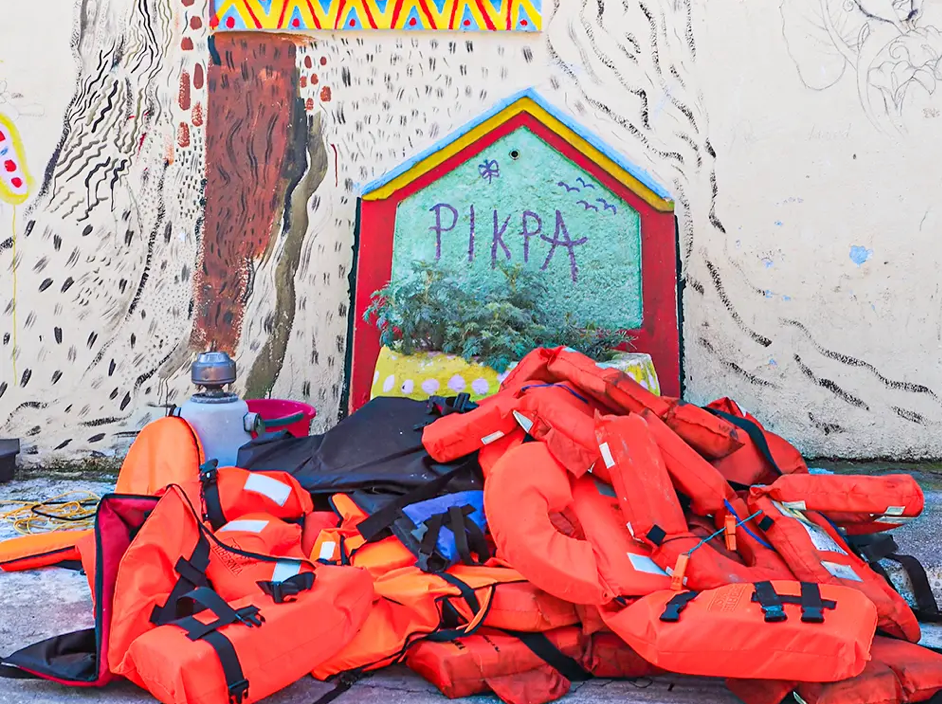The Critical Role of the UN in Protecting Human Rights in Haiti
- Human Rights Research Center
- Nov 2, 2023
- 4 min read
Author: Kalesh Loakman
November 2, 2023

The United Nations Security Council (UNSC) on October 3, 2023 passed a historic resolution which has authorized the deployment of the Multinational Security Support (MSS) Mission to Haiti. As was reported, the fifteen-member Council passed a UNSC resolution with 13 votes in favor and 2 abstentions. Resolution 2699 (2023) in its preambular paragraphs emphasizes that one of the objectives, along with the MSS, is to restore respect for human rights in Haiti, and to this extent, S/RES/2699 (2023) authorizes the use of necessary force to combat the humanitarian and human rights crisis caused as a result of gang activity.
The necessary aid will help the island nation deal with its escalating humanitarian and human rights crisis induced by widespread gang violence in Port-au-Prince, the nation’s capital. Haiti’s Prime Minister, Ariel Henry, who is also the current interim leader of the French Caribbean nation, in his appeal for international support to combat worsening gang violence in the country. He bemoaned that gang activity has been responsible for widespread massacres and extrajudicial killings; kidnappings; rapes and sexual violence, especially against girls; human trafficking and child recruitment. The situation has been described as “horrifying” by UN High Commissioner for Human Rights, Volker Türk, after the conclusion of his trip to Haiti in February 2023. He further stated that there is thus a dire need for the restoration of the rule of law and strict compliance with international human rights standards set out in respective covenants comprising the International Bill of Rights, as reported after the visit of the UN High Commissioner for Human Rights in February 2023. There seems to be no hope of the restoration of peace in Haiti without the critical intervention of the UN as the United Nations Secretary-General’s latest report (September 2023) has troublingly enunciated that the human rights situation in Haiti continues to deteriorate.
Nature of Human Rights Violations in Haiti
Women
The inherent and non-derogable right to life, as protected under Article 6 of the ICCPR, is being endangered for the Haitian population. The Secretary-General's report reveals that from October 2022 to June 2023, a total of 2,768 intentional homicides were recorded. Of this number, 247 victims were women and 78 were minors. Moreover, the kidnapping and abduction of 300 women and children recorded in the first half of this year is in flagrant violation to the right to liberty and security of persons, as protected under Article 9 of the ICCPR which expressly forbids arbitrary detention of any person. Further, rapes and acts of sexual violence perpetrated by gang members is an affront to the inherent dignity of persons as recognized by the ICCPR.
Children
Additionally, the alarming effects of gang activities and gang violence which has threatened the lives and personal safety of children cannot be overlooked. In addition to the killing and kidnapping of minors, gangs have also targeted schools. This has pushed thousands of children out of schools. The overall crisis in Haiti has also caused a spike in malnutrition among children in the country. In addition to the International Bill of Rights which are equally applicable to children, the Convention on the Rights of the Child (CRC) enunciates rights exclusively applicable to children.
The intentional killing of children by gangs in Haiti violates the inherent right to life under Article 6 of the CRC. Under Articles 8 and 9 of the CRC, children have the right to preserve their family relations, and the right not to be separated from his or her parents against their will, which are threatened by forced gang recruitment. By virtue of not being able to attend school, these children are also denied their right to education under Article 28 of the CRC.
International Obligation to Promote Human Rights
Article 2 of both International Covenants (ICCPR and ICESCR) as well as is iterated in the preamble of USC resolution 2699, the protection and promotion of human rights are primarily the responsibility of the state through its government. However, the Haitian Police Force- the state arm responsible for ensuring citizens’ safety and peace and order- is ill-equipped to combat the intensifying occurrence of gang violence. The humanitarian mission, in addition to restoring peace and security in Haiti will fulfill the UN Charter’s general mandate of promoting “universal respect for, and observance of human rights and fundamental freedoms”, in keeping with Article 55 of the Charter, which is an undertaking of all member states of the UN either separately or jointly in “co-operation with the Organization” (art. 56). It is in this spirit that Kenya has agreed to lead the MSS, and other Caribbean nations such as the Bahamas, Jamaica, Antigua and Barbuda, and Guyana, will be supporting this mission in Haiti.
Glossary
Abstention – not voting in favor or against something or someone.
Arbitrary detention – arrest and detaining a person not in keeping with the confines of the laws of a state or international human rights standards.
Extrajudicial killings - meaning the deliberate killing of individuals outside of any legal framework.
Non-derogable - absolute, not subject to restriction or limitation.
Preamble - a statement that is made at the beginning of a legal document and usually gives the reasons for the parts that follow.



